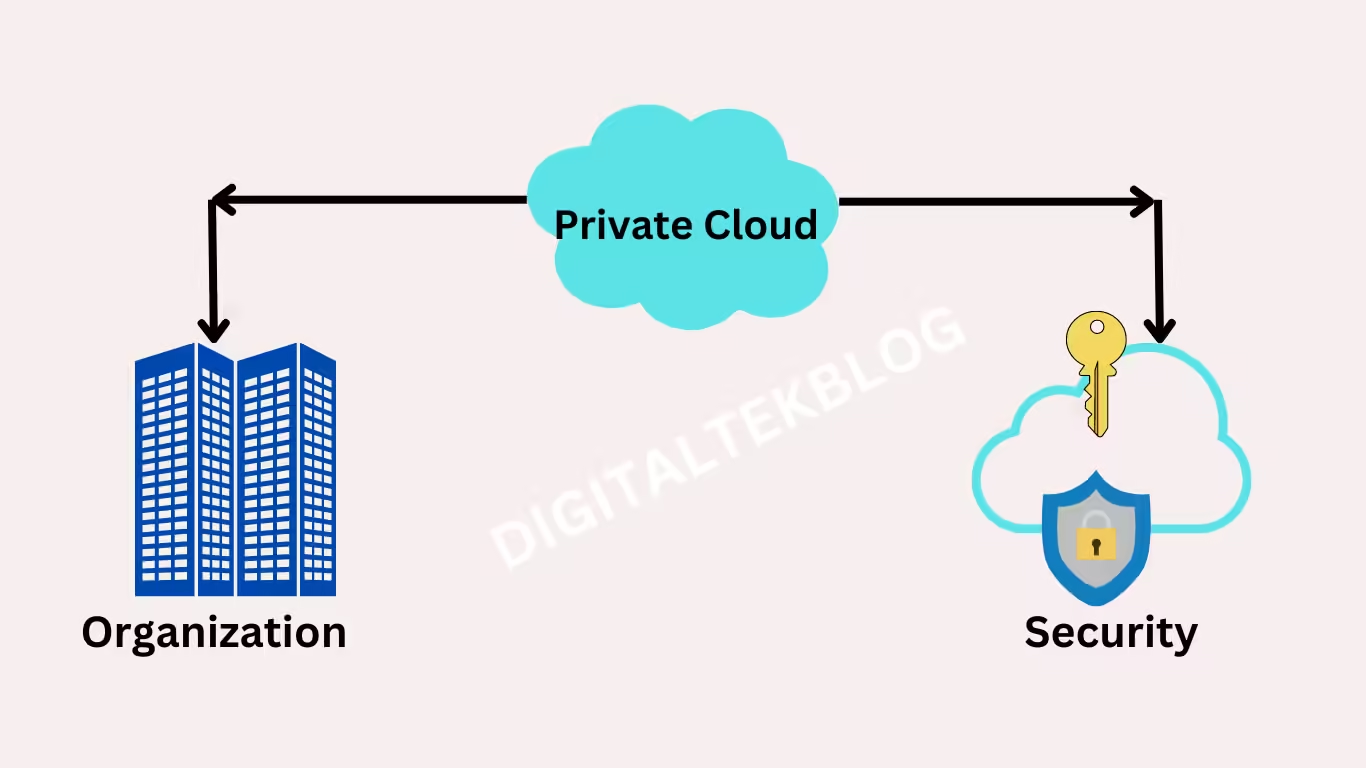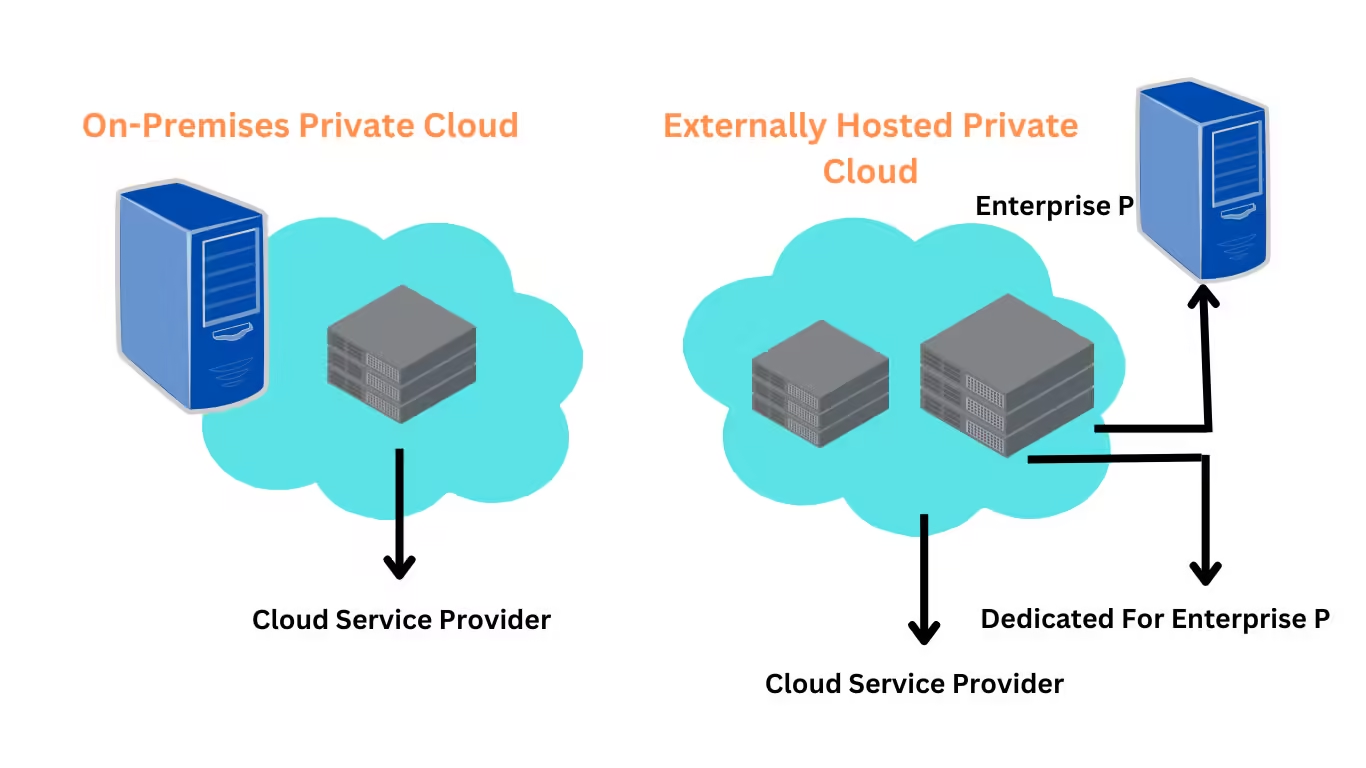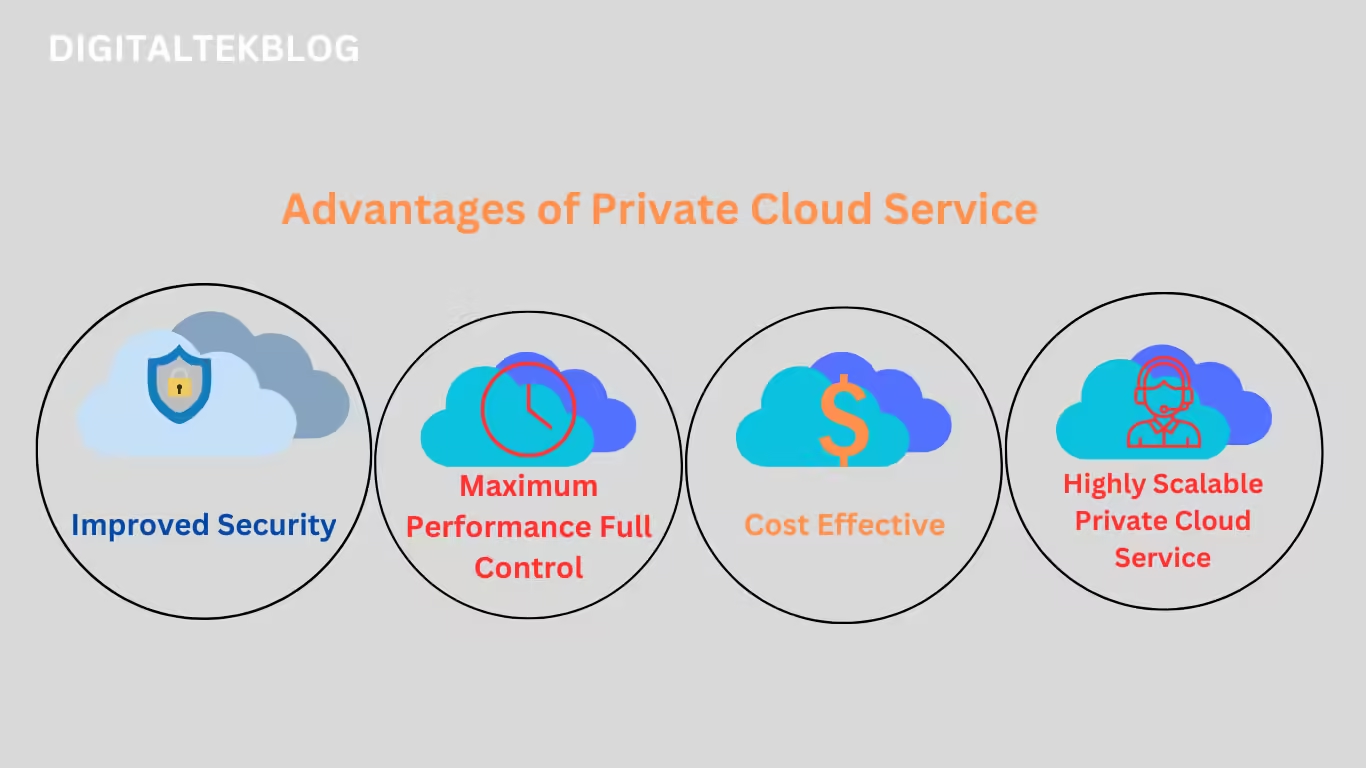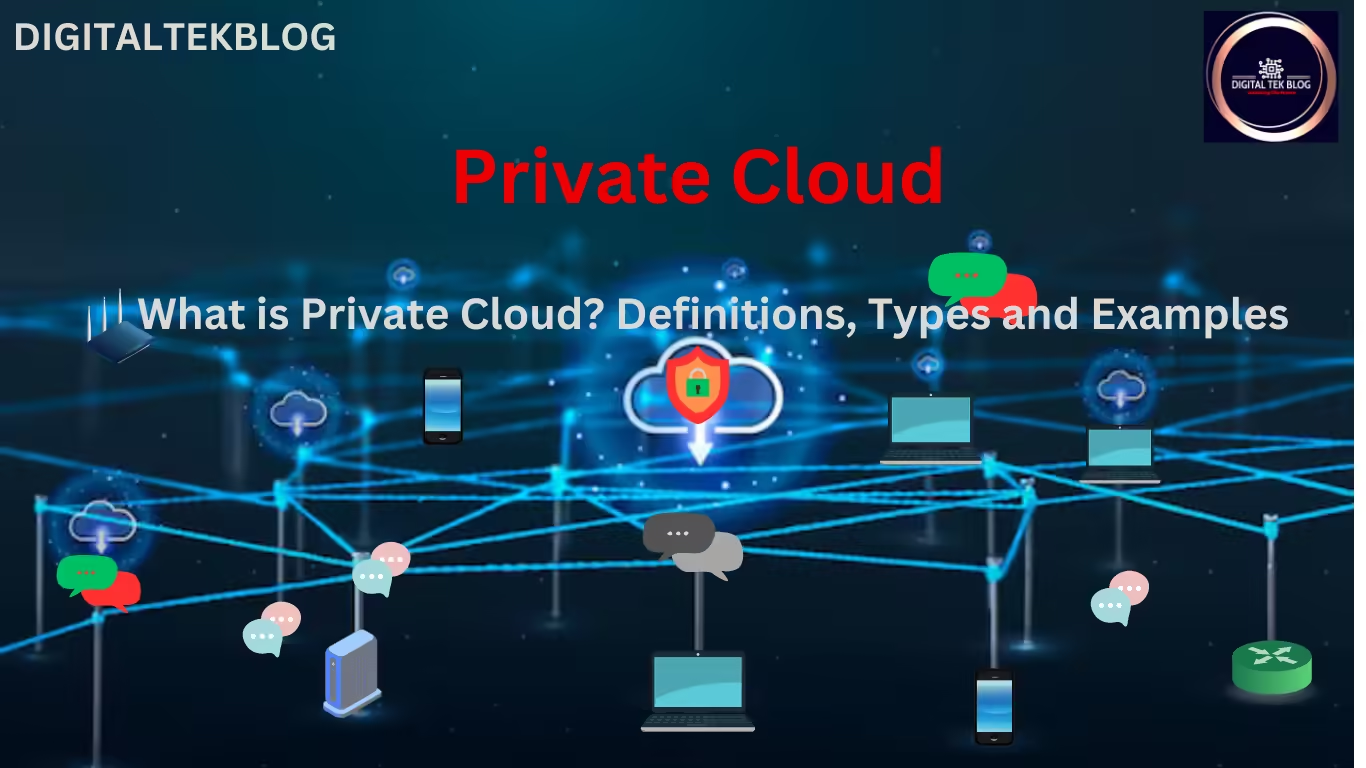A private cloud is a cloud computing environment that is defined as a single organization. A cloud infrastructure where all resources, like those that CPU and storage use on demand for self-service, are controlled by one organization. So that you can say, a private cloud is also an internal or corporate cloud. A private cloud is dedicated to a single customer or a single organization. Private clouds provide many benefits in cloud computing, like scalability, flexibility, and fast service delivery. Private clouds allow customers to maintain the same level of security, access control, and customization for their own premises infrastructure.

Definition and characteristics of a private cloud
- Private cloud is also known as internal cloud and corporate cloud
- Private clouds provide cloud computing within internal networks, which are managed by the local users.
- Private clouds provide high security and privacy, and data is transferred through firewalls. Data is not managed by the third party, and data is used in a sensitive way.
Characteristics of Private Cloud
Internal Infrastructure
A private cloud is defined as being in a single organization so that there is dedicated infrastructure and management in the internal network. There is dedicated hardware and storage that are used in organizations.
Customization
It provides highly customizable options that organizations can manage with their requirements. Flexibility and configuration provide the security compliances and customize hardware, operating systems, and applications on the basis of requirements.
Control
It provides a lot of security, rules, and regulations for the users to access and permission.
Security
A private cloud is used in a single organization so that it provides high security and data privacy. To access the data, organizations implement their own security and policy so that data is always safe.
How does a private cloud work?
Private cloud computing is similar to the public cloud, which requires implementation of the same technologies.
Virtualization
Virtualization is a technology that creates virtual machines in physical hardware with the use of IT resources. Virtual machines run on physical machines and implement the software in the same way as physical machines. Virtualization is a software pool used to allocate resources like CPU, memory, and storage on a virtual machine.
Software Management
Administrators manage the software and IT infrastructure centrally. They implement and configure the software across the server and application environment.
Types of Private Cloud

There are mainly four types of private clouds in cloud computing.
- On-premises private cloud
- Virtual private cloud
- Hosted private cloud
- Managed private cloud
These mainly four types of private cloud differ from each other, and it depends on who manages the private cloud environment and where it is used. Each private cloud has different functions and benefits that are based on organization levels.
Let’s discuss these types of private clouds.
On-premises private cloud
It is only placed on the data center and managed by the IT team. It provides a high level of control, data privacy, security, and many customizations. It has limited capacity for infrastructure. The organization purchased the resources to maintain and upgrade. It is expensive and requires heavy investment for the organization.
Virtual private cloud
A virtual private cloud is deployed within a public cloud infrastructure. This is the secure environment. Private cloud users run the code, host websites, store data, and perform the other tasks that are required for the data center. It provides the convenience of public cloud computing, control, and security.
Hosted private cloud
Hosted private clouds are also called private cloud hosting. It runs off-premises and is managed by the third-party vendor’s cloud server. Hosted private clouds provide high resources, high scalability, and a user-friendly dashboard. Service providers managed the cloud resources, like maintenance, upgrades, and security.
Managed Private cloud
Managed private cloud is run on a single environment and totally managed by the third-party cloud vendors. For example, in an organization, the IT team purchased the cloud resources and maintained them by a third party in the data center. Third parties provide the maintenance, upgrade, support, and remote management and configuration for the organization’s private cloud resources. It also deploys software, networks, and operations. Providers also offer other services like identity management, storage, and backups of data for recovery. This is expensive, but it is a more convenient and on-site solution.
Advantages of Private cloud

There are so many advantages of private clouds, but here we discuss only selected advantages.
Complete Control
There is complete control over the resources and hardware of the public cloud because it is used only by organizations or selected users.
Privacy and security
This is the big advantage of private cloud computing. It has improved the security level. Private cloud and infrastructure is managed by the local IT department, so it provides more privacy.
Performance
It provides the best performance, like improved speed and capacity of space, other than that of a public cloud.
Customization
It provides better customization to the users. The user can customize the private cloud computing infrastructure, security, and application as per the requirements of the business.
Data protection
Since the data is used in a single organization only, private clouds provide better levels of data protection and privacy of data. Unauthorized access is not possible in private cloud computing.
Disadvantages of private cloud computing
A private cloud is used for a single organization or a single user, so it is more expensive to install for organizations. In the private cloud, you must pay for operating systems and software licenses and allocate the resources for cloud management and maintenance. It provides less flexibility and scalability. There is limited capacity and limited hardware and software that you have purchased for the setup.
What is the difference between private cloud, public cloud, and hybrid cloud?
Cloud computing is an on-demand service of IT resources. In cloud computing, IT resource ownership is responsible for third parties that know how to manage and setup the infrastructure. Here we discussed two common cloud deployments.
Public cloud
A public cloud is a multi-user environment where cloud resources and services are handled and shared between multiple organizations or users. Public cloud resources are handled by the third-party cloud provider. Public cloud services and computing resources are managed by third parties. The cloud service provider is responsible for maintenance, availability, and security on the service level. In the public cloud, you don’t have your own physical data center and servers.
[icon name=”hand-point-right” prefix=”fas”] What is an example of a public cloud? Definition, 5 types, and advantages
Hybrid cloud
Hybrid cloud is a combination of public cloud and private cloud. In hybrid cloud computing, extend the services of the private cloud into the public cloud. Hybrid cloud computing services move smoothly from a private cloud environment to a public cloud.
[icon name=”hand-point-right” prefix=”fas”] Top 10 best examples of Hybrid cloud computing
Private cloud
This is a single-user environment where the cloud resources and services are used by a single organization. A private cloud is typically hosted on-premises in a single organization’s data center.
[icon name=”hand-point-right” prefix=”fas”] Learn more about cloud computing
follow me : Twitter, Facebook, LinkedIn, Instagram

